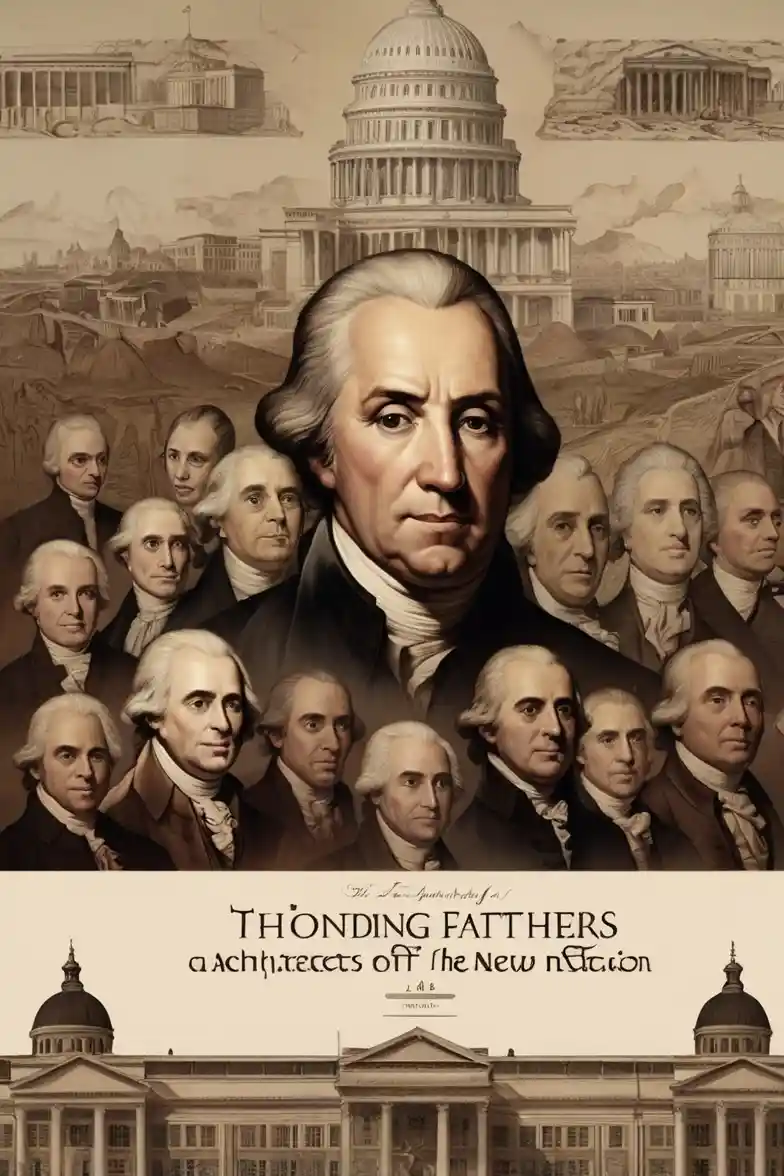The Founding Fathers of the United States stand as towering figures in the history of modern governance and democracy. These visionaries laid the groundwork for a nation built on principles of liberty, equality, and justice. Through their collective wisdom and determination, they crafted a framework that would not only guide the fledgling nation but also inspire countless others around the globe. But who were these individuals, and how did they shape the foundation of the United States? Let’s delve into their legacy and understand their pivotal role as architects of a new nation.
Who Were the Founding Fathers?
The term “Founding Fathers” generally refers to a group of influential leaders and statesmen who played key roles in the American Revolution, the drafting of the Constitution, and the establishment of the United States as an independent nation. While there is no definitive list, notable figures commonly included are George Washington, Thomas Jefferson, John Adams, Benjamin Franklin, Alexander Hamilton, James Madison, and John Jay.
Each of these individuals brought unique skills and perspectives to the table. For instance:
- George Washington provided steadfast leadership as the Commander-in-Chief of the Continental Army and later as the first President of the United States.
- Thomas Jefferson, principal author of the Declaration of Independence, was a staunch advocate for individual liberties.
- Alexander Hamilton, a brilliant economist, laid the groundwork for America’s financial system.
- James Madison, often referred to as the “Father of the Constitution,” was instrumental in shaping the nation’s foundational document.
Together, their collective efforts defined the principles that would guide America for generations.
The Birth of a New Nation: The Declaration of Independence
One of the most significant contributions of the Founding Fathers was drafting the Declaration of Independence in 1776. Written primarily by Thomas Jefferson, this document boldly proclaimed the colonies’ separation from British rule. It articulated revolutionary ideas about human rights, stating that “all men are created equal” and endowed with “unalienable Rights” such as “Life, Liberty, and the pursuit of Happiness.”
The Declaration was more than just a statement of independence; it was a blueprint for a new society grounded in self-governance and freedom. By asserting these ideals, the Founding Fathers set the stage for a nation unlike any other—a republic governed by its citizens rather than a monarchy.
Crafting the Constitution: A Masterpiece of Compromise
After gaining independence from Britain, the Founding Fathers faced the monumental task of creating a government that could unite thirteen diverse colonies while preserving individual freedoms. The result was the United States Constitution, drafted in 1787 during the Constitutional Convention in Philadelphia.
The Constitution was a groundbreaking document that established a system of checks and balances through three branches of government: legislative, executive, and judicial. This design ensured that no single entity could wield unchecked power.
However, achieving consensus was no easy feat. The Founding Fathers engaged in intense debates over issues such as state representation, slavery, and federal authority. The Great Compromise—establishing a bicameral legislature with proportional representation in one house and equal representation in the other—was one example of their ability to find middle ground.
The Constitution’s resilience lies in its adaptability. Through amendments such as the Bill of Rights (the first ten amendments), the Founding Fathers ensured that individual liberties were explicitly protected. Their foresight allowed future generations to refine and expand upon their vision.
The Legacy of Leadership
The Founding Fathers were not without flaws; they were products of their time and often failed to fully address issues like slavery and women’s rights. However, their contributions remain monumental in shaping modern democracy.
Their legacy endures not just in America but around the world. The principles they championed—freedom, equality, and self-determination—continue to inspire movements for justice and liberty globally. Their willingness to innovate, compromise, and take bold risks serves as a timeless example of leadership.
FAQs
1. Why are they called “Founding Fathers”?
The term “Founding Fathers” is used to honor their pivotal role in founding the United States as an independent nation through their leadership in drafting key documents like the Declaration of Independence and Constitution.
2. Were all Founding Fathers presidents?
No, not all Founding Fathers served as presidents. While George Washington, Thomas Jefferson, and John Adams became presidents, others like Benjamin Franklin and Alexander Hamilton contributed in different capacities.
3. What role did women play during this time?
While women like Abigail Adams influenced their husbands behind the scenes, they were largely excluded from formal political roles during this era. However, their advocacy laid the groundwork for future movements toward gender equality.
4. Why is James Madison called the “Father of the Constitution”?
James Madison earned this title due to his significant contributions to drafting and promoting the Constitution and his role in authoring many of The Federalist Papers that explained its framework.
5. Did all Founding Fathers agree on everything?
No, they often disagreed on key issues like federal versus state power or economic policies. However, their ability to compromise was crucial in shaping a unified vision for America.
The Founding Fathers were more than just historical figures; they were visionaries who dared to dream of a better future. Their work as architects of a new nation laid the foundation for democracy as we know it today—a legacy that continues to inspire and challenge us to strive for a more perfect union.



